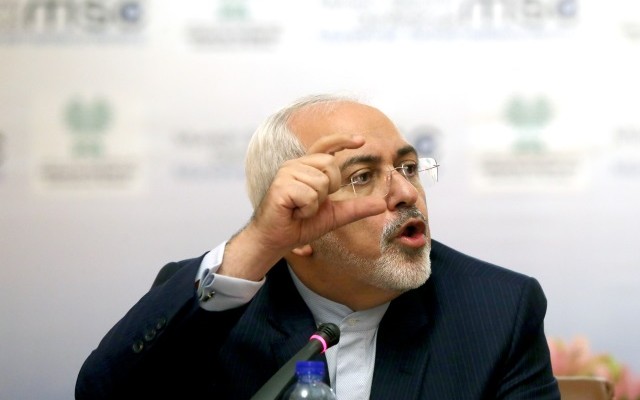Iran is refusing to fulfill its obligations under the nuclear deal and is demanding last moment changes, insisting that the US first remove sanctions.
At the last moment, Iran is refusing to fulfill its obligations under the nuclear deal it signed with six world powers in July and is demanding that the US first lift sanctions on Iran prior to its completion of the deal, in complete contradiction to the agreement.
The Middle East Media Research Institute (MEMRI) reported on Sunday that according to the agreement, it is now Iran’s turn to meet specific obligations, and once the UN’s International Atomic Energy Agency (IAEA) which is monitoring Iran’s compliance confirms it has done so, the West will take measures to ease or suspend some of the sanctions they have imposed on the Islamic Republic to force it to cease with its development of nuclear weapons.
However, Iran is now demanding to make an essential change to the agreement so that the US first acts to lift the sanctions and only then will Iran meet its obligations.
In a December 18 interview with The New Yorker, Iranian Foreign Minister Mohammad Javad Zarif said that some political issues still need to be resolved, hinting at the lifting of the sanctions before Iran fulfills its commitments. He also said that Iran is “not dismantling anything, only uninstalling some centrifuges and reconstructing the Arak reactor, modernizing it.”
“There are obligations on the other side [US] that we have to make sure are implemented before we start the final stage of our implementation. . . . So once these are finalized, the practical measures that need to be implemented on our side will start. So I’m not saying two weeks from today. I’m saying two weeks from the time we settle all the difficulties,” Zarif said in the interview.
‘Mentality in Washington’ and Obstacle to Complete Implementation
When asked about challenges to implementing the agreement, Zarif said that the most important challenge that remains “is this mentality in Washington that sanctions have been an asset, and some people want to find even an excuse to keep them or an excuse to reintroduce them. I don’t know whether they’ve looked at the record of how sanctions actually produce exactly the opposite of what they wanted to produce.”
On Monday, Iran protested the US’ recent tightened security requirements of its visa waiver program, which allows citizens of 38 countries to travel to the U.S. without visas. Now, people from those countries who have traveled to Iran, Iraq, Syria and Sudan in the past five years must obtain visas to enter the US.
This move, according to Deputy Foreign Minister Abbas Araghchi, contradicts the nuclear agreement.
Iranian Foreign Ministry Spokesman Hossein Jaberi Ansari said in a news conference that the US came “under pressure from the Zionist lobby and currents” opposed to the nuclear deal.
Under the nuclear deal, known as the Joint Comprehensive Plan of Action (JCPOA), the world powers including the U.S. are committed to refrain from any policy intended to adversely affect normalization of trade and economic relations with Iran.
“The law Obama signed contradicts JCPOA,” state TV quoted Araghchi as saying. “Definitely, this law adversely affects economic, cultural, scientific and tourism relations.”





